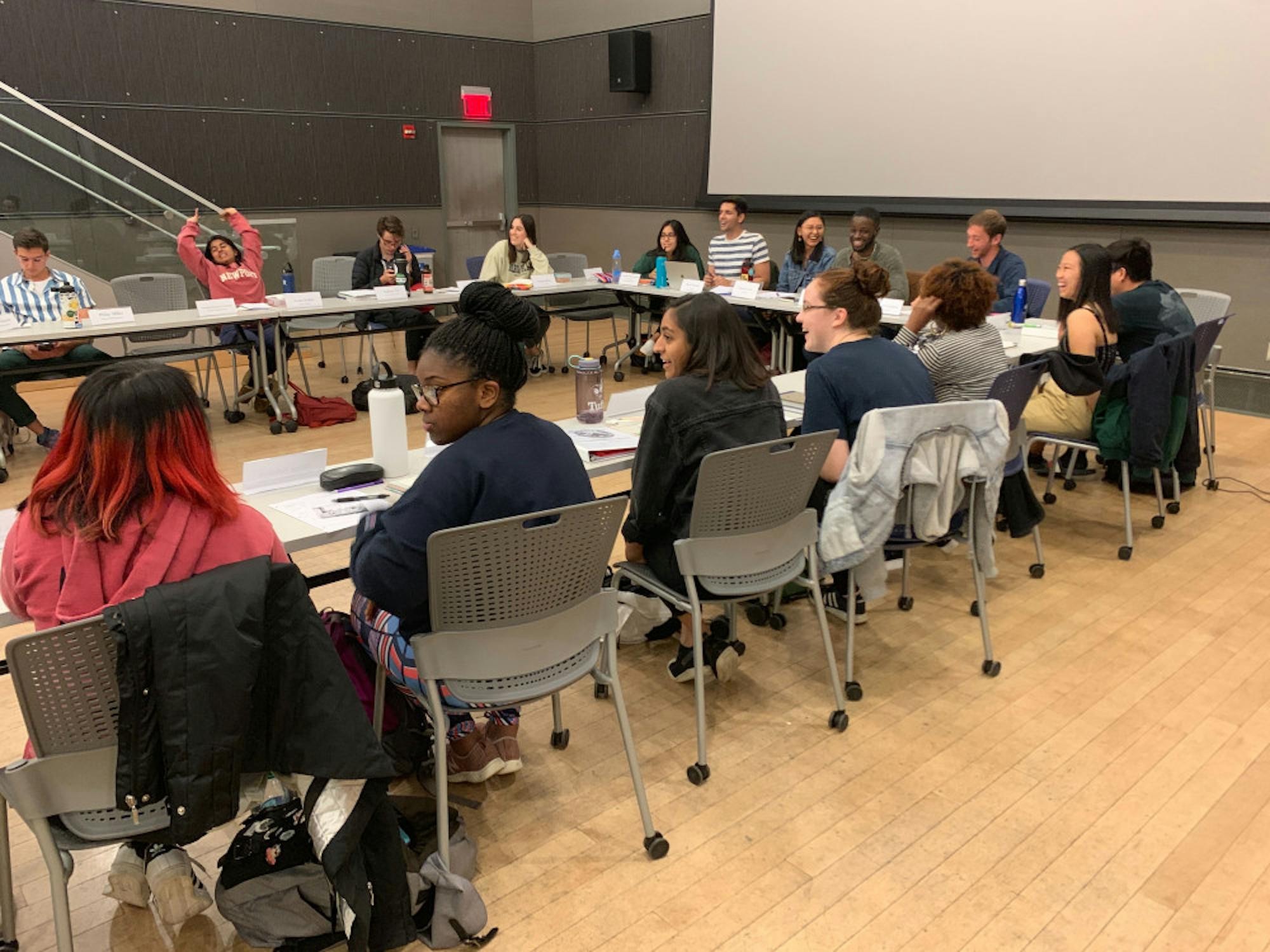Tufts Community Union (TCU) Senate published an Oct. 7 letter from Executive Vice President Michael W. Howard regarding his plans to establish an advisory group to the Investment Committee of the Board of Trustees for the purposes of reviewing issues with the university's investments in fossil fuels.
The letter was in response to TCU Senate Resolution 19-7, “A Resolution Calling on Tufts University to Transition to a Carbon-Neutral Endowment,” which urged the Board of Trustees to publish annual reports on Tufts' investments, specifically in the fossil fuel industry, and to initiate a process toward carbon-neutral endowments.
The resolution passed in the Senate 24–0–0. According to TCU Parliamentarian Finn McGarghan, the resolution holds leverage as it conveys to the administrators what the student body wants as a whole.
The resolution was submitted on March 31 by members of the Tufts Climate Action (TCA), a group which focuses on systemic change to address the climate crisis, according to TCA organizer Celia Bottger.
The resolution reiterated parts of earlier ones surrounding the topic of divestment, but called for carbon neutrality rather than divestment. According to Bottger, a senior, carbon neutrality is a crucial first step toward fossil fuel divestment, and the resolution reflects an attempt to reopen the dialogue between administrators.
In 2013, a TCU Senate resolution, a student referendum and a written proposal called for divestment from fossil fuel holdings, according to a 2014 letter from University President Anthony Monaco. These actions prompted Monaco to establish the Divestment Working Group, comprised of students, faculty, administrators and trustees. Along with investigating a sustainability fund, the Divestment Working Group was tasked with examining the impacts of divestment on the institution, according to the letter.
Monaco released a letter to members of the Tufts community in Feb. 2014 stating that the Divestment Working Group’s report ultimately advised to refrain from divestment, citing a $75 million loss in market value in the following five years.
“It would not be prudent to expose the university to that kind of risk at this time,'' Monaco wrote. “We will, however, continue to examine the feasibility of divestment in the future.”
The Divestment Working Group ceased to meet after submitting the report to Monaco in 2014, according to Ann Rappaport, a senior lecturer in the Department of Urban and Environmental Policy and Planning and a member of the Divestment Working Group. She said that she, along with other members, was aware of the lack of options with commingled funds. However, because of the increasing pressure of the financial management community to come up with more investment options, they were adamant that the university's decisions be reviewed.
The response to Resolution 19-7 was emailed to McGarghan and TCU Historian Rabiya Ismail on Oct. 7, and TCU released it to the public two days later after receiving permission to do so from Howard. According to Ismail, the letter was received with hopefulness as a substantial first response.
Bottger emphasized how the letter conveyed Howard’s willingness to engage. She explained that TCA is looking forward to communicating with Howard, whom TCA has emailed without response. She added that his past actions as Vice President of Smith College are promising.
Rappaport echoed this sentiment. “Smith has taken a whole lot of measures, campus sustainability related and related to their investments, to align both with their mission and values,” she said. “I think there’s a strong sentiment that we can do that.”
The hope from the letter, according to Ismail, a sophomore, is that the advisory group will contain student input, which will shift the Investment Committee towards divestment.
Rappaport emphasized this importance of governance strategies to more effectively acknowledge future generations. She said that faculty-initiated divestment proposals in the past have not had the traction they were looking for, but that she believes student organizations will be productive with persistence.
“It just seems immoral not to consider future generations in decision making, and it hasn’t happened. And so I think this may just be a foot in the door, but it’s a really important one both for the university and for TCU,” she said.
TCU President Shannon Lee was appreciative of the communication and review but expressed concerns that student demands pushing for divestment will not be reflected in TCU Senate's work with the Board of Trustees. She said that with student input in the Divestment Working Group in 2014, the group still ultimately refused divestment.
In response to Howard's letter six months after the resolution, McGarghan, a senior, explained the lengthy process of creating formal statements on a topic as big as investment.
“It has to be cleared by the person writing it, it has to go through the legal team, it has to clear so many hoops for it to be public information. And unfortunately, it has to be written so formally, and usually pretty vaguely.”
Hanna Carr, a senior TCA leader who was one of 10 who submitted the resolution, expressed worry that the process for reviewing the endowment procedures may not reflect the urgency of the matter.
“We only have 11 years, under a business as usual emissions scenario, to stop some of the most catastrophic effects of climate change, and we’re worried that by dragging their feet and building out a long drawn process to review endowment procedures, they’re squandering time that could be used to move our endowment toward more sustainable sources in the meantime,” she said.
According to Ismail, the letter, in mentioning the planning of an advisory team, ties the administration to their words.
“It was still specific enough at the end that it shows that if they don’t do what they’re saying in this letter, they’re going to be held accountable for it,” she said.
Administration responds to TCU resolution 19-7 calling for a carbon-neutral endowment

TCU Senate holds a meeting on Oct. 14, 2019 in the Sophia Gordon Multipurpose Room.





